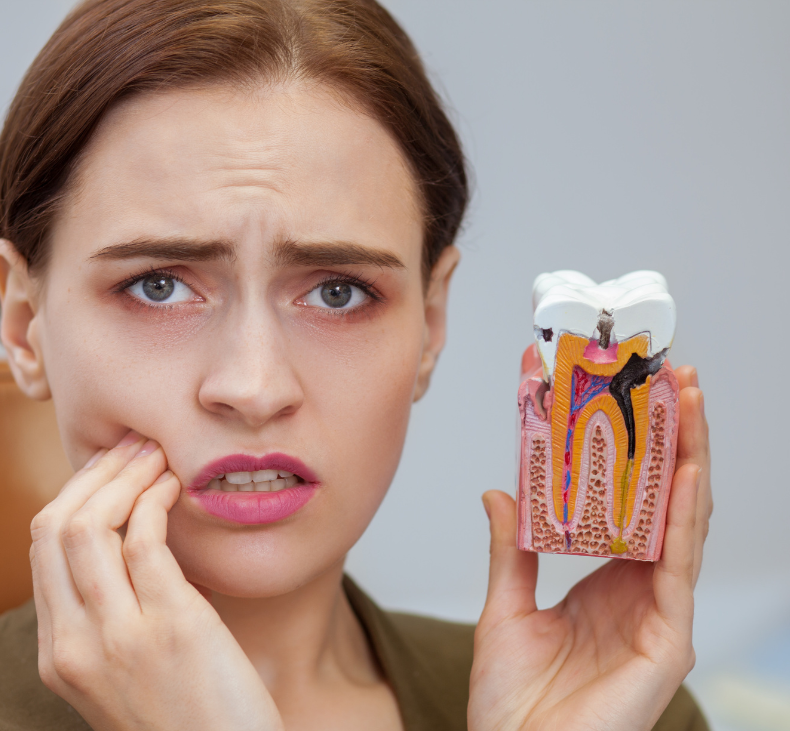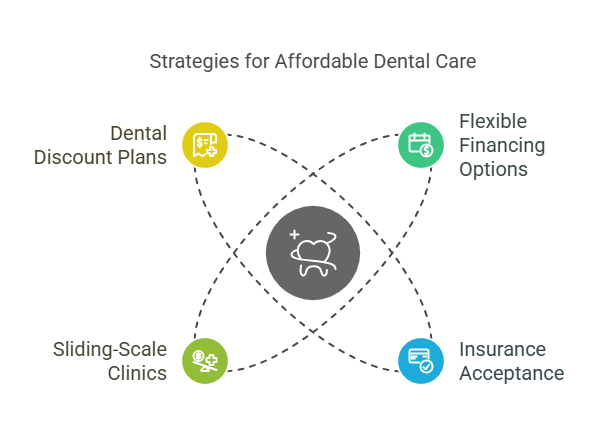When your child experiences a dental emergency, finding prompt and specialized care is crucial to alleviate pain and prevent further complications. If you’re searching for an emergency pediatric dentist for kids near me in Weymouth, MA, this comprehensive guide will assist you in understanding common pediatric dental emergencies, immediate steps to take, and how to locate the best emergency dental care in the Weymouth area.
Understanding Pediatric Dental Emergencies

Children are prone to dental issues, ranging from minor toothaches to severe injuries. Recognizing what constitutes a dental emergency can help you respond effectively.
Common Pediatric Dental Emergencies
-
Toothaches: Often caused by cavities or infections, characterized by persistent pain.
-
Chipped or Fractured Teeth: Resulting from falls or impacts, leading to sensitivity or pain.
-
Knocked-Out Tooth (Avulsion): A tooth completely dislodged from its socket due to trauma.
-
Dental Abscess: A bacterial infection leading to a pocket of pus, causing swelling and severe pain.
-
Soft Tissue Injuries: Lacerations or cuts to the gums, lips, or tongue.
Immediate Steps to Handle Dental Emergencies

Taking prompt action can significantly impact the outcome of a dental emergency.
Toothaches
-
Rinse: Have your child rinse their mouth with warm water.
-
Floss: Gently floss to remove any trapped food particles.
-
Pain Relief: Apply a cold compress to the cheek and administer age-appropriate pain relievers.
Chipped or Fractured Teeth
-
Rinse: Clean the mouth with warm water.
-
Save Fragments: Collect any broken pieces and store them in milk or saline solution.
-
Visit Dentist: Seek immediate dental attention.
Knocked-Out Tooth
-
Handle Carefully: Pick up the tooth by the crown, avoiding the root.
-
Rinse: Gently rinse with water without scrubbing.
-
Reinsert: If possible, place the tooth back into the socket and have your child bite down gently.
-
Store Properly: If reinsertion isn’t possible, store the tooth in milk or saline.
-
Seek Immediate Care: Time is critical; visit a dentist within 30 minutes.
Dental Abscess
-
Rinse: Use a mild saltwater solution to rinse the mouth.
-
Cold Compress: Apply to the affected area to reduce swelling.
-
Avoid Heat: Do not apply heat or hot compresses.
-
Seek Immediate Care: An abscess requires prompt professional treatment.
Soft Tissue Injuries
-
Clean: Rinse the mouth with warm water.
-
Apply Pressure: Use a clean cloth or gauze to control bleeding.
-
Cold Compress: Apply externally to reduce swelling.
-
Seek Care if Necessary: If bleeding persists, consult a dentist or visit the emergency room.
Finding an Emergency Pediatric Dentist in Weymouth, MA
Locating a qualified emergency pediatric dentist is vital for your child’s oral health.
Factors to Consider
-
Specialization: Ensure the dentist specializes in pediatric emergency care.
-
Availability: Look for dentists offering after-hours or weekend services.
-
Proximity: Choose a dentist within a reasonable distance to minimize travel time during emergencies.
-
Reputation: Read reviews and seek recommendations from other parents.
Preventing Dental Emergencies
While not all emergencies are avoidable, certain measures can reduce the risk.
Regular Dental Check-Ups
-
Early Detection: Routine visits help identify potential issues before they become emergencies.
-
Professional Cleaning: Removes plaque and reduces the risk of decay.
Protective Gear
-
Mouthguards: Essential for children involved in sports to prevent trauma.
-
Helmets: Provide additional protection during physical activities.
Oral Hygiene Education
-
Brushing and Flossing: Teach proper techniques to maintain healthy teeth and gums.
-
Dietary Choices: Limit sugary snacks and drinks that contribute to decay.
10 “People Also Ask” Questions and Answers
-
What should I do if my child’s tooth is knocked out?
- Handle the tooth by the crown, rinse gently, reinsert if possible, or store in milk, and seek immediate dental care.
-
How can I manage my child’s toothache at home?
- Rinse with warm water, floss gently, apply a cold compress, and administer appropriate pain relievers. Seek professional care if the pain persists.
-
Can a chipped baby tooth be fixed?
- Yes, a dentist can smooth sharp edges, apply bonding, or use a crown, depending on the severity.
-
Is a dental abscess in a child an emergency?
- Yes, a dental abscess requires immediate treatment to prevent infection from spreading.
-
Are emergency dentists available on weekends in Weymouth, MA?
- Some pediatric dentists and urgent dental clinics offer weekend emergency services.
-
How do I prevent dental injuries in children?
- Use mouthguards for sports, maintain good oral hygiene, and childproof your home to avoid accidents.
-
Can a child’s knocked-out tooth be reinserted?
- Permanent teeth can sometimes be reinserted, but baby teeth should not be reinserted.
-
What are the signs my child needs emergency dental care?
- Severe pain, swelling, bleeding, pus formation, or difficulty eating are indicators of an emergency.
-
Will my child need an X-ray for a dental emergency?
- In many cases, an X-ray is necessary to assess hidden damage or infections.
-
What is the cost of an emergency pediatric dental visit?
- Costs vary but typically range from $100-$300 for an evaluation, excluding treatments.
10 Frequently Asked Questions (FAQs)
1. What is an emergency pediatric dentist?
An emergency pediatric dentist is a specialist who provides urgent dental care for children experiencing pain, trauma, or infections.
2. How do I find an emergency pediatric dentist in Weymouth, MA?
Check online directories, call local dental offices, or visit emergency clinics for immediate assistance.
3. Can my child go to the ER for a dental emergency?
Yes, for severe swelling, uncontrollable bleeding, or suspected jaw fractures, visit the ER. However, for most dental emergencies, a pediatric dentist is the best choice.
4. Is a loose baby tooth an emergency?
Usually not, but if it’s causing pain or is knocked out prematurely, consult a dentist.
5. How soon should my child see a dentist after a dental injury?
Immediately for knocked-out teeth or severe injuries; within 24 hours for minor chips or pain.
6. Can cavities cause a dental emergency?
Yes, untreated cavities can lead to infections or abscesses, which require urgent treatment.
7. Do emergency pediatric dentists accept insurance?
Most accept insurance; check with your provider for coverage details.
8. Can my child’s tooth be saved after a dental injury?
In many cases, yes. Quick action increases the chances of saving a damaged tooth.
9. What should I bring to an emergency dental visit?
Bring your child’s dental history, insurance details, and any dislodged tooth fragments.
10. Are sedation options available for emergency dental procedures?
Yes, many pediatric dentists offer sedation for anxious children during urgent treatments.
Conclusion
Ensuring your child receives prompt and appropriate care during a dental emergency is crucial for their overall well-being. By understanding common emergencies, taking immediate action, and knowing how to find an emergency pediatric dentist in Weymouth, MA, you can effectively manage these stressful situations. Regular preventive measures further safeguard your child’s dental health, reducing the likelihood of future emergencies. If you are looking for Weymouth dentists, please visit Comfort Dental Weymouth, 47 Washington St, Weymouth, MA 02188, (781) 337-3300.




























